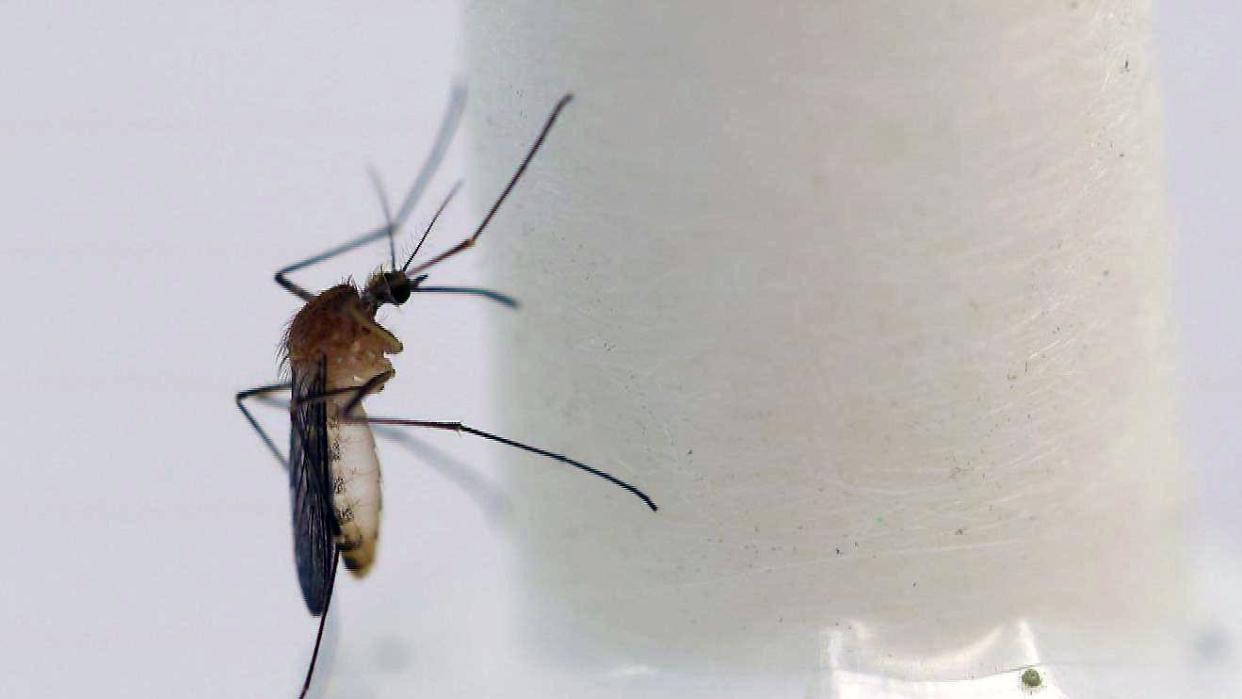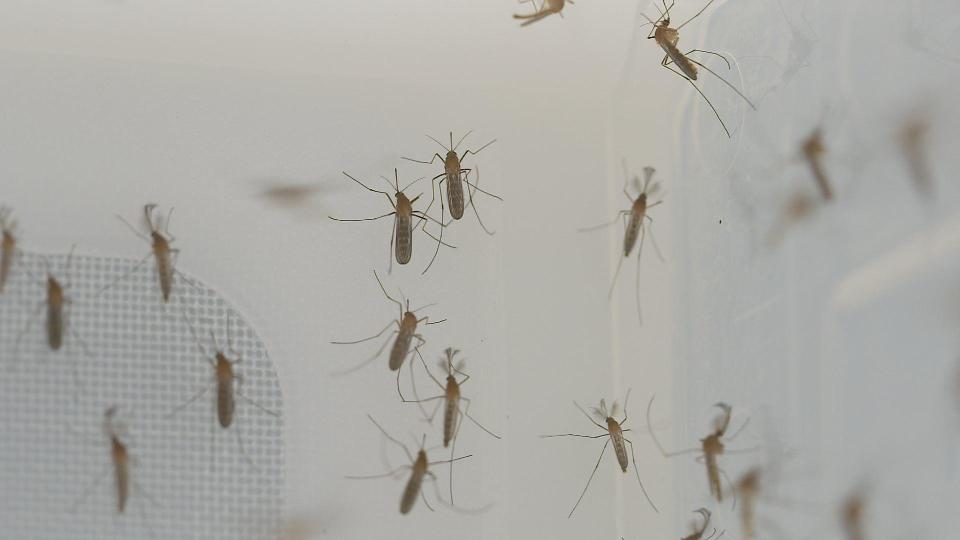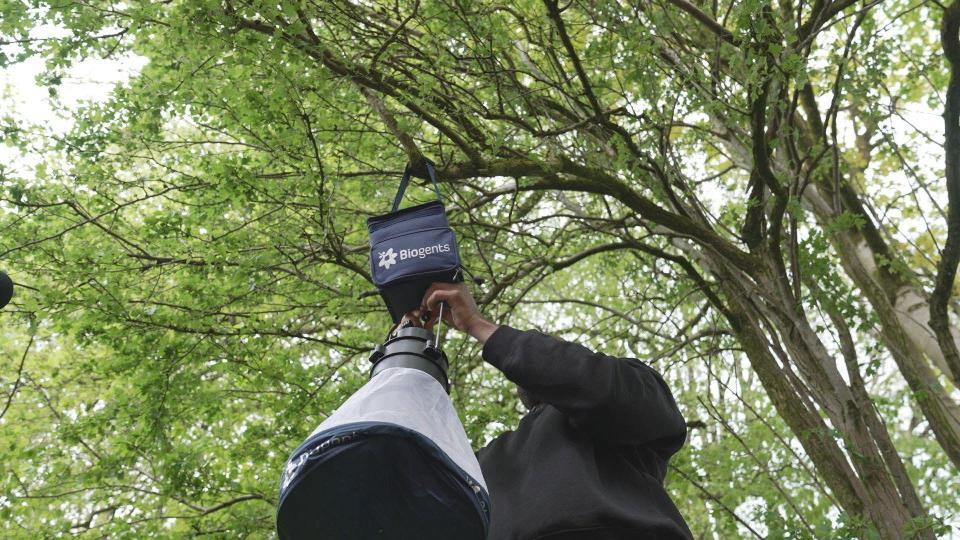Mosquitoes found across Scotland as temperatures rise

One of the most common types of mosquito has been identified for the first time in locations across Scotland, according to researchers at the University of Glasgow.
They found 16 types of mosquito in Scotland, including the Culex pipiens, which is prevalent in North and South America, parts of Europe and some areas of Asia and Northern Africa.
Prof Heather Ferguson, who has been leading the study, said they were surprised to find the insects in all corners of the country.
She warned that warmer temperatures could lead to larger numbers of mosquitoes, including ones from areas where they can transmit diseases.

While Scots have long been pestered by swarms of midges, which thrive in the warm and wet conditions of a Scottish summer, there has been little knowledge about how widespread mosquitoes are north of the border.
Mosquitoes are larger than midges and have a proboscis with which they suck blood.
This means mosquitoes are feared across the world as carriers of deadly diseases such as dengue and Zika.
The World Health Organization (WHO) estimates that about 219 million people contract malaria from mosquitoes each year globally, resulting in 400,000 deaths.
Experts stressed that the type of mosquito which carries malaria is unlikely to be found in the UK any time soon, though an early warning system is important.

Until now, very little has been known about how widespread mosquitoes are in Scotland.
So experts at the Centre for Virus Research have been keeping a close eye on their movements to monitor the impact of climate change on disease spread.
They hung traps at 24 locations across the country and lured the insects by the smell of carbon dioxide, which mimics human breath.
They found 16 varieties out of about 4,000 in the world.
The highest concentrations were at their sites around Loch Kinnordy in Angus and Broubster Leans in Caithness.
Prof Ferguson said: "With warming temperatures we’re going to see larger numbers of mosquitoes, potentially different species including some that might be migrating from other areas where they can transmit diseases," she said.
"They may be active for longer periods which means they maybe do pose a risk.”

Dr Nick Phin, the medical director at Public Health Scotland, said mosquitoes could carry potentially deadly diseases so it was important to understand how they were spreading.
He said that in recent years the West Nile virus, which is mainly transmitted to people through the bites of infected mosquitoes, had been spreading across Europe.
“Cases have been identified in France," Dr Phin said.
"It doesn’t take a leap of the imagination to see that very soon they could be detected in England and in Scotland”
"It’s the warmer winters rather than the summers which allow the mosquitoes to survive.
"That’s because colder conditions kill of many of the insects, keeping populations numbers lower."
'Surveillance system'
A major worry is the UK becoming more suitable for invasive species such as the Asian tiger mosquito, also known as Aedes albopictus, which carries dengue fever.
A recent UK Health Security Agency (UKHSA) report looked at a worst case scenario.
They found England would be the first country in the UK to be affected, with Wales, Northern Ireland and parts of the Scottish Lowlands also becoming suitable habitats later in the century.

The mosquitoes have already been responsible for recent cases of dengue in France and the chikungunya virus in Italy.
UKHSA already has a surveillance system in place to rapidly spot invasive mosquitoes, including a network of traps placed at UK borders that detect mosquito eggs.
The Scottish government says it also funds research through the Animal and Plant Health Agency.
Dr Phin says there now needs to be more government-backed studies to better understand the risks.
He said: “Without a baseline to know what is currently happening it’s difficult to say whether things are getting better or worse.
"If we do have a formal system, the hope is we’ll identify some of these species early and take measure to hopefully stop them breeding in the UK.
“We need some formal structure around this surveillance.
"We need this to be continued in a very systematic and structured way to understand what’s happening but to detect early incursions of these mosquitoes into Scotland."

